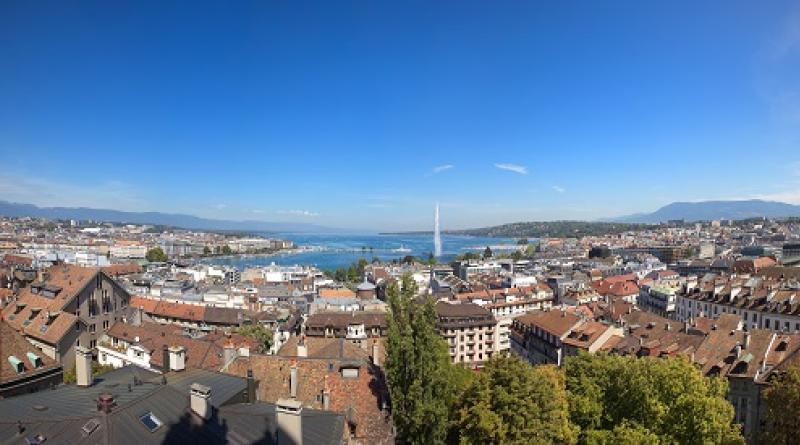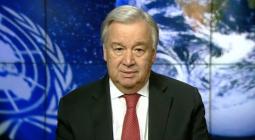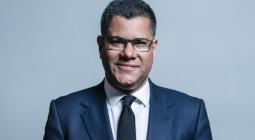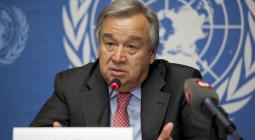Cities at the forefront of key battles for humanity: time for a new multilateralism?

We are living in one of those moments which define history. As it is always the case in such moments, the promise and peril of international cooperation, solidarity and multilateralism inevitably come under the spotlight, as evidenced by the overwhelming media attention given to governments’ joint response to the current Covid-19 outbreak.
Multilateral cooperation continues to shape the world we live in, including through the United Nations (UN) system, which I am proud to work for. As the crown of joint efforts by governments worldwide to create a more peaceful and prosperous world, the UN this year marks its 75th anniversary of working to alleviate poverty, put an end to hunger, and help build lasting peace.
In recent years, it has become increasingly clear that some of the most pressing challenges humanity faces – including climate change, outbreaks of pandemics, environmental issues, to name just a few – cannot be solved by national governments alone. As our world is growing increasingly urban – with UN-Habitat estimating that the two-thirds of humanity will be living in cities by 2050 – cities are those that will be at the forefront of key battles for humanity.
Accordingly, the multilateral system has to adapt to recognize that cities have moved beyond being simply places where we live and work and became vital players in the international arena. One good evidence that this is already happening is the rise of governing networks such as C40 and ICLEI – networks of mayors and city leaders that allow for an exchange of experiences and knowledge on how to govern cities. At the time when the Covid-19 outbreak resulted in an almost global lockdown, C40 and ICLEI are providing key resources and tools that are helping local governments navigate the pandemic. Such networks have been invaluable in giving city leaders greater representation at the global level.
The UN is now also ready to follow suit and play its role in ensuring that mayors are given proper representation at the global high table, in order to demonstrate that its commitment to multilateralism is still viable in the 21st century. As a member-state driven organization, the UN has a unique advantage of having a global outreach, an intimate knowledge of the situation of individual countries and regions, and the neutrality needed to balance the action at all levels.
The UN reform is discussing proposals for a renewed organization, fit to respond to the emerging needs of governments, their people and the global architecture. The need for a new multilateralism is clear, and a number of UN member states are already recognizing the importance of including local governments into global dialogue. One notable example is the work of the United Nations Economic Commission for Europe’s Committee on Urban Development, Housing and Land Management (CUDHLM), which is hosting its pioneering Forum of Mayors on 6 October 2020 in the Palais des Nations in Geneva. This event will welcome the new generation of mayors and urban leaders working to make our cities healthier, more sustainable, and liveable.
Under the broader topic of urban resilience, mayors will share their experiences in combating climate change, the Covid-19 pandemic and other emergencies, as well as some innovative practices that are transforming the cities as we know them.
How did the city of Tirana manage the recovery after a disastrous 6.4 magnitude earthquake? As one of the worst hit Swiss cantons during the Covid-19 outbreak, the city of Geneva’s efforts to provide designated assistance to those most vulnerable is certainly an experience that will be worthwhile sharing at the Forum of Mayors. Likewise, how are cities like Victoria, Bonn and Helsingborg combating climate change via nature-based solutions, including urban tree-planting? All these and many more insights by mayors will feed into and inform the decision-making process of the Committee on Urban Development, Housing and Land Management, which will then be in a better position to draft and adopt tailored and targeted instructions for the UNECE to support and help implement.
For now, the Forum of Mayors is only about hearing the voices of mayors, though. It nonetheless allows for their experience, needs, and challenges to shape the agenda of the Committee on CUDHLM, an intergovernmental body that is capable of providing direction to member states through its practical work as well as the approval of milestone documents, such as the UN Charter for Sustainable Housing, a blueprint for the provision of sustainable, healthy and affordable housing.
As someone who has been supporting innovative work on urban development for years now, I consider the Forum of Mayors and the related inclusion of local policy-makers into decision making processes of the CUDHLM, as an excellent way to signal our preparedness to continue supporting our member states in an ever-changing and increasingly complex world. In light of the 75th anniversary of the United Nations working towards a new and modern multilateralism, including mayors and urban leaders into our discussions and work is a definitive sign that the UN is staying on the right track. I would encourage you all to join us at the Forum of Mayors at the Palais des Nations on 6 October 2020 and see for yourself what the future of multilateralism will look like.
Olga Algayerova
Under-Secretary-General of the United Nations
Executive Secretary of the UNECE
27 April 2020
UNECE




